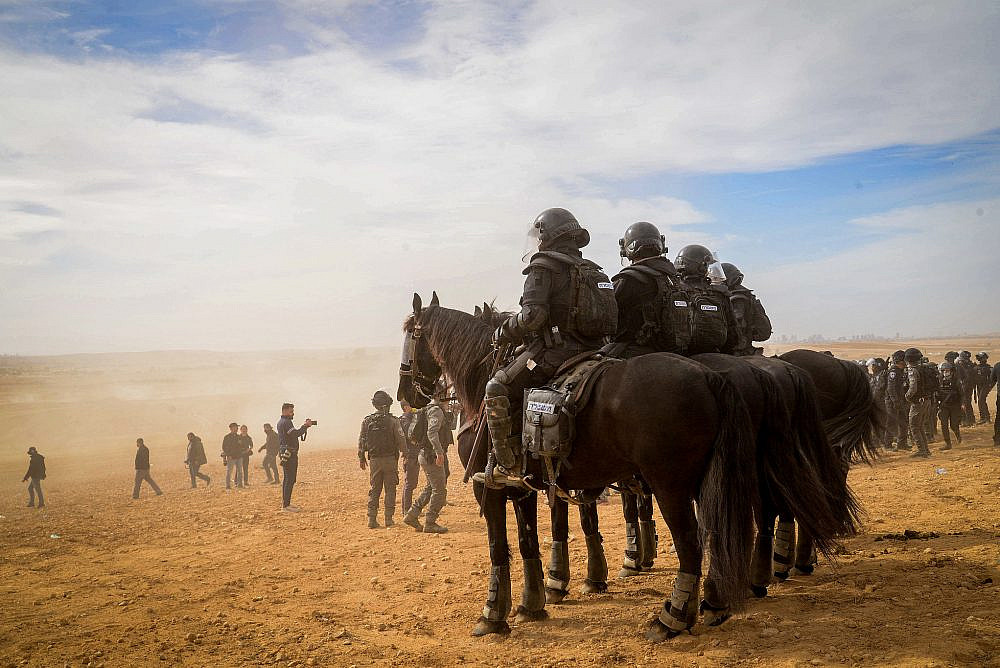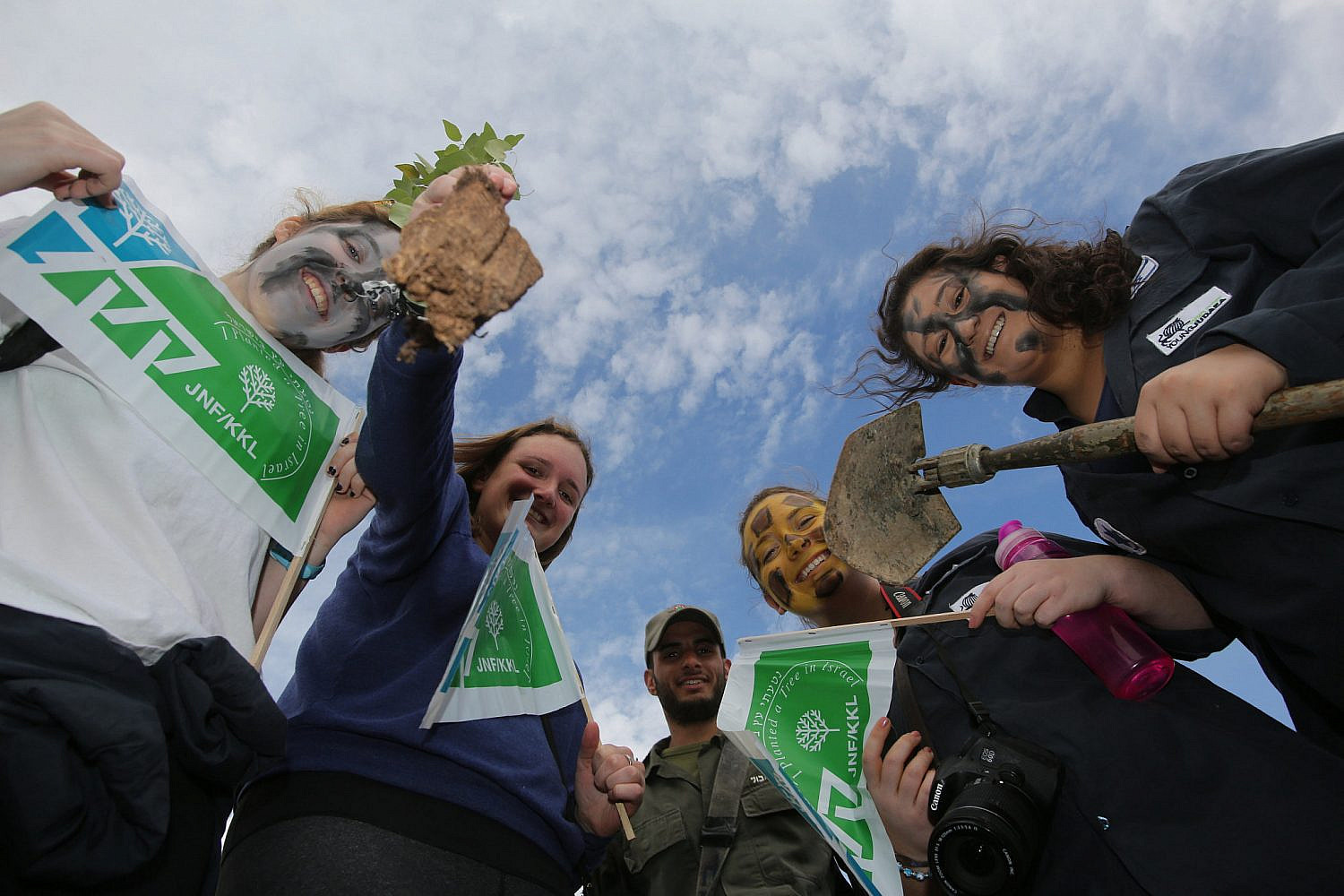The state has historically planted trees as a way to conceal the Palestinian villages it destroyed — and whose residents it expelled — during the Nakba in 1948. But the practice remains a tool for the further dispossession of Israel’s Palestinian citizens to this day. Nowhere is this more apparent than in the Naqab/Negev, where Israel’s struggle over land against Bedouin citizens is taking the shape of a military operation.
Gov’t contract shows how Israel enlists forests to grab land from Bedouin citizens

Palestinian Bedouin citizens of Israel try to stop Israeli bulldozers being used in a tree-planting program carried out by the Jewish National Fund (JNF) on the land of the village of Sa’wa al-Atrash in the Naqab/Negev, January 12, 2022.
This article was published in partnership with Local Call.
Ever since its founding, the State of Israel has used tree planting as a means to either cover up the past or pave the way for the future. While on its face tree planting appears a benign, even positive policy to pursue, in Israel, the story is quite different.
New documents uncovered by Local Call reveal the extent to which the Israeli authorities treat their own citizens as enemies. According to a contract between the Israel Land Authority (ILA), which manages state-owned land, and the Jewish National Fund-Keren Kayemeth LeIsrael (JNF-KKL), a quasi-governmental organization that owns 13 percent of the land in Israel and is responsible for tree-planting projects across the country, Israeli police recommended that the JNF plant forests in territories that the state wants to “protect” from the Bedouin in order to “to prevent invasions and trespassers.”
The plans, according to the contract, are to be kept “secret until their implementation,” while the Bedouin residents, who oppose the planting on land they claim ownership of, are defined as a “criminal [and] hostile population.”
The afforestation itself, the document stipulates, will be carried out by the JNF as a contractor of the ILA, and the land on which the trees will be planted is not assigned to it. The scope of the contract is NIS 15 million for 2022, and NIS 20.5 million for 2023. Notably, the agreement has been exempted from public tender; government institutions in Israel are supposed to issue such tenders for all contracts, unless a decision is specifically made otherwise.
While previous afforestation contracts between the ILA and JNF were justified by the latter’s proficiency in planting forests, this year the militarized language stands out as a major justification. The new agreement explicitly claims that afforestation has proven to be effective at preventing “invasions,” and that saplings are intended to facilitate a “strong capture” of the land.
Furthermore, the agreement states that the location for afforestation was determined after inspectors from the ILA, the Nature and Parks Authority, and the JNF identified “‘sensitive’ areas… [in which] repeated massive invasions take place, characterized by cultivation and illegal construction.”
The militaristic language may be a response to robust protests led by Bedouin residents in the village of Sa’wa al-Atrash in January, after Israeli authorities attempted to carry out afforestation plans on their land.
“This document shows how the state is deliberately operating in the dark,” said attorney Myssana Morany from Adalah, a legal center focused on the rights of Palestinian citizens of Israel. The contract, Morany added, shows that for the state and the police, “planting trees has become a weapon” against the Bedouin population.

